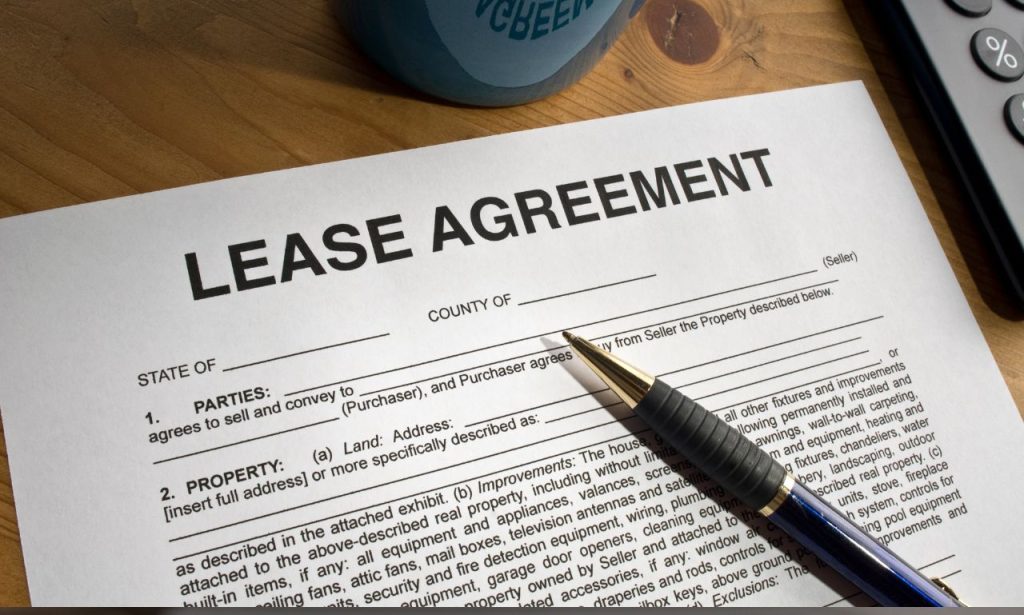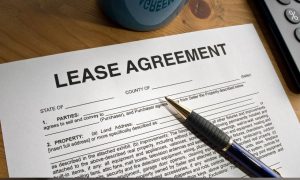Moving to the Sunshine State often feels like stepping into a postcard. Palm trees sway, the ocean whispers promises of adventure, and the air hums with a vibrant energy. Yet, life, even in paradise, throws curveballs. Circumstances change, dreams shift, and sometimes, your once-perfect Florida abode no longer feels like home. If you find yourself staring at your lease agreement, a knot of anxiety tightening in your stomach as you contemplate an early exit, take a deep breath. You’re not trapped. This guide will walk you through the intricate process of how to legally break a lease in Florida, empowering you to navigate this challenging situation with confidence.
Understanding Your Rights
Before diving into the legal maze of lease termination, it’s crucial to arm yourself with knowledge. Florida law, specifically the Florida Statutes Title VI Chapter 83, Part II, governs landlord-tenant relationships, outlining both your rights and responsibilities as a tenant. Familiarizing yourself with this legal framework is the first step toward understanding your options and ensuring you’re treated fairly.
Key Takeaways for Florida Tenants:

- Lease Agreements are Binding Contracts: Signing a lease isn’t just a formality; it’s entering a legally binding agreement. Both you and your landlord are obligated to uphold the terms outlined within the lease, including the duration of the rental period.
- Early Termination Usually Carries Consequences: While Florida law provides avenues for legally breaking a lease, doing so often comes with financial penalties. Understanding these potential costs is essential before making any decisions.
- You Have Rights, Exercise Them: Don’t let the fear of legal jargon or landlord intimidation prevent you from asserting your rights. If you believe your landlord has violated the lease agreement or acted unlawfully, you have legal recourse.
Legal Procedures for Breaking a Lease in Florida
Breaking a lease, even for legally valid reasons, requires careful adherence to specific procedures. Failing to follow these steps could weaken your case and expose you to legal challenges from your landlord.
1. Notice Requirements
Florida law mandates written notice to your landlord when terminating your lease, regardless of the reason. This notice serves as formal communication of your intent to vacate the premises.
Key Considerations for Notice:
- Form of Notice: Always deliver notice in writing. While verbal communication might seem easier, it lacks the necessary documentation for legal purposes.
- Delivery Method: Opt for a delivery method that provides proof of receipt, such as certified mail with return receipt requested or hand-delivery with a witness signature.
- Notice Period: The required notice period varies depending on the reason for breaking your lease. Refer to your lease agreement or consult with an attorney to determine the applicable timeframe.
2. Required Documentation
Supporting your reason for breaking the lease with proper documentation strengthens your legal standing. Gather any evidence relevant to your situation, ensuring it’s well-organized and easily accessible.
Types of Supporting Documentation:
- Military Orders: Copies of your deployment or PCS orders for active military personnel.
- Photos and Videos: Visual evidence of uninhabitable living conditions, including pest infestations, structural damage, or lack of essential services.
- Communication Records: Copies of emails, letters, or text messages documenting your communication with the landlord regarding repairs, harassment, or requests for reasonable accommodations.
- Medical Documentation: Medical records or letters from healthcare providers verifying your disability and the need for modifications to your living space.
3. Responsibilities of Landlords
While your focus remains on legally exiting the lease, it’s crucial to understand your landlord’s responsibilities during this process.
Landlord’s Duty to Mitigate Damages:
- Seeking New Tenants: Upon receiving your notice, your landlord is legally obligated to make reasonable efforts to find a replacement tenant for the remainder of your lease term.
- Minimizing Financial Losses: This duty to mitigate damages aims to minimize the financial impact of your early termination on the landlord.
Potential Penalties for Breaking a Lease in Florida
While legally justified reasons protect you from penalties, breaking a lease for other reasons often carries financial consequences. Understanding these potential costs allows you to make informed decisions and explore ways to minimize your financial burden.
1. Financial Liabilities
- Rent Payments for the Remainder of the Lease: You could be responsible for paying rent for the remaining months of your lease term, even if you’re no longer living in the unit.
- Advertising and Marketing Costs: Your landlord might seek reimbursement for expenses incurred while advertising the vacant unit and finding a new tenant.
- Lease Break Fees: Some leases include specific clauses outlining fees for early termination. These fees are typically a predetermined amount, such as two months’ rent.
- Legal Fees: If your landlord incurs legal expenses while enforcing the lease agreement, you might be held liable for those costs.
2. Impact on Credit Ratings
Breaking a lease and failing to fulfill your financial obligations can negatively impact your credit score. A lower credit score can have far-reaching consequences, affecting your ability to secure loans, rent future apartments, and even obtain employment.
Protecting Your Credit:
- Negotiate a Settlement with Your Landlord: Engage in open communication with your landlord to explore potential compromises, such as a reduced financial settlement or a payment plan.
- Fulfill Your Financial Obligations: If possible, continue making rent payments until your landlord finds a replacement tenant to avoid missed payments on your credit report.
Exploring Subletting Options
Subletting your rental unit to another tenant offers a potential solution to mitigate financial losses when breaking your lease. However, subletting is subject to your landlord’s approval and the terms of your lease agreement.
Understanding Subletting:
- Landlord Consent: Most leases require written consent from your landlord before subletting your unit.
- Sublet Agreement: Create a separate sublet agreement between you and the subtenant, outlining the terms of their tenancy.
- Liability Remains: Even when subletting, you remain ultimately responsible for the lease agreement and any damages caused by the subtenant.
Seeking Legal Consultation

Navigating the complexities of Florida landlord-tenant law can be overwhelming, especially when facing the stress of breaking a lease. Consulting with an experienced attorney specializing in tenant rights provides invaluable guidance and protects your legal interests.
When to Seek Legal Counsel:
- Facing Landlord Resistance: If your landlord refuses to acknowledge your legal right to break the lease or engage in reasonable negotiations.
- Dealing with Complex Legal Issues: If your situation involves intricate legal matters, such as discrimination claims or significant financial liabilities.
- Needing Peace of Mind: Consulting with an attorney provides peace of mind, knowing you have an advocate on your side, protecting your rights throughout the process.
Conclusion
Breaking a lease in Florida is rarely a simple process. It’s a journey fraught with legal complexities, potential financial implications, and emotional stress. However, by understanding your rights, exploring valid reasons for early termination, and following the proper legal procedures, you can navigate this challenge successfully. Remember, knowledge is your most powerful tool. Arm yourself with information, seek legal counsel when needed, and approach the situation with a calm and assertive demeanor. You’ve got this.
ALSO READ: How to Work for Insurance Companies as a Contractor
FAQs
A: Unfortunately, buying a house is not a legally protected reason to break a lease in Florida. Your lease agreement is a binding contract, and you could face financial penalties for early termination. However, it’s worth discussing your situation with your landlord. They might be willing to negotiate a mutually agreeable solution, especially if you can help find a replacement tenant.
A: Your landlord has a legal duty to mitigate damages, which includes making reasonable efforts to re-rent the unit. If they fail to do so, you might have grounds to argue that you shouldn’t be held liable for the entire remaining rent. Keep detailed records of your communication with the landlord and any evidence of their lack of effort in finding a new tenant. This documentation could be valuable if you need to pursue legal action.
A: While it might seem tempting, withholding rent is generally not advisable in Florida. It’s crucial to follow the proper legal procedures for addressing uninhabitable conditions. Document the issues, notify your landlord in writing, and allow them a reasonable time to make repairs. If they fail to address the situation, you can pursue legal remedies, including potentially depositing rent with the court until the repairs are complete.
A: Even if your lease doesn’t explicitly address early termination, Florida law still governs the landlord-tenant relationship. Your lease falls under the default provisions of Florida Statutes Title VI Chapter 83, Part II. It’s always best to consult with an attorney to understand your rights and obligations, especially in situations not explicitly covered in your lease agreement.




